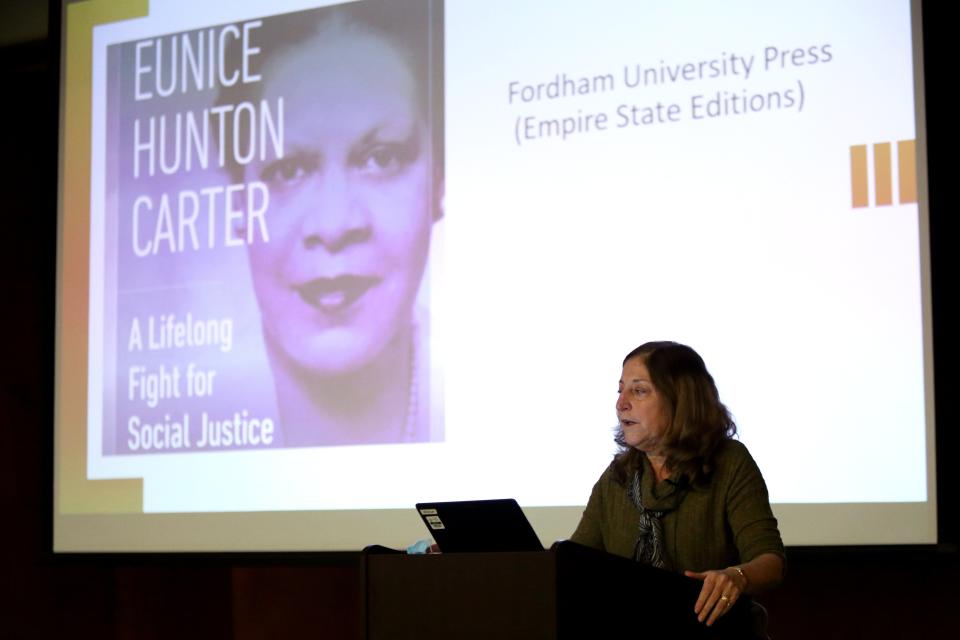Black History Month: Legal trailblazer Eunice Hunton Carter spotlighted at Bexley library event
- Oops!Something went wrong.Please try again later.
A little-known chapter in history is the legal team that successfully prosecuted Mafia figure Charles “Lucky” Luciano in 1936 included one of the nation’s few African American female lawyers at the time, Eunice Hunton Carter.
In a Feb. 7 presentation at the Bexley Public Library that coincided with the observance of Black History Month, author Marilyn Greenwald described Carter’s contributions to history.

Greenwald, an Ohio University professor emerita of journalism, shared insights from her biography, “Eunice Hunton Carter: A Lifelong Fight for Social Justice.”
Carter was the only Black woman prosecutor on the team that brought about the conviction of Luciano, a mobster known for engineering the structure of modern organized crime in the country.
“This was an amazing achievement for not just a woman to be on the team, but a woman of color,” Greenwald said. “How on earth did this happen in an era of racism and sexism?”
Carter came from a family of trailblazers, Greenwald said.
Her grandfather, Stanton Hunton, was a slave who bought his freedom. Her father, William Hunton, was one of the first African Americans to hold a high-level leadership position in the international YMCA organization. Hunton’s mother, Addie, was a political organizer, educator and writer.
Before earning her law degree from Smith College, Carter had been a successful writer, producing well-reviewed short stories and other works of fiction, Greenwald said.
“It was great writing, so great that she actually became an active member of the Harlem Renaissance,” Greenwald said, referring to the 1920s movement that celebrated African American artistic achievements. “Her writing was really respected, and it should have been.”
After marrying Lisle Carter Sr., one of the first Black dentists in New York City, and earning her law degree from Fordham University, Carter quickly made a name for herself in the legal field. In 1935, New York Mayor Fiorello La Guardia named her to a commission that investigated a race riot and strategized how to prevent future social unrest.
“They gather all this information. She gets to the point where she organizes it and turns it into legislation,” Greenwald said. “There were four bills passed – I don’t want to say just because of Eunice, but she’s the one that did a lot of the work. And most of them had to do with equal housing and equal education. ...People didn’t realize the extent of the housing problems and unequal education (among African Americans).”
Carter’s work with the commission brought her media attention and prestige and led renowned attorney Thomas Dewey to appoint her to the legal team assembled to prosecute Luciano. Carter worked alongside her colleagues, who all were white, in the summer of 1936 in what was called “the trial of the century” by New York newspapers.
Carter established the critical link between prostitution and the mob that helped to bring about the guilty verdict, Greenwald said. Carter went on to head one of the units of the New York prosecutor’s office, worked on Dewey’s gubernatorial and presidential campaigns, held positions with the United Nations and eventually went into private practice.
“She became one of the highest-paid attorneys in New York,” Greenwald said. “She became kind of a mini-star. People knew who she was.”
For information about upcoming library events, go to bexleylibrary.org.
editorial@thisweeknews.com
@ThisWeekNews
This article originally appeared on ThisWeek: Black History Month: Legal trailblazer Eunice Hunton Carter spotlighted at Bexley library event

